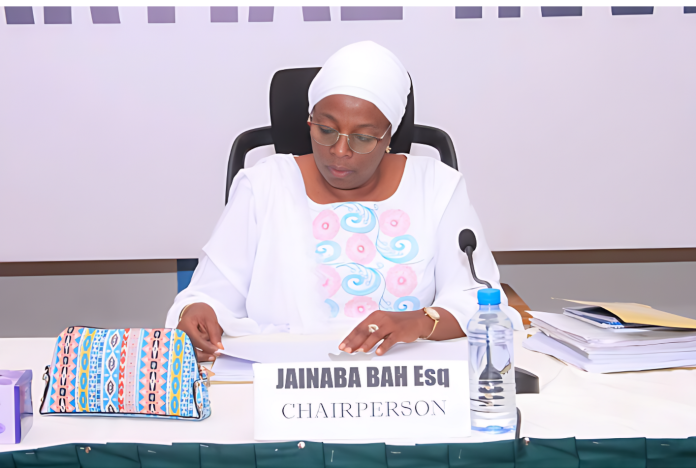Isatou Njie, a former national coordinator of the Réseau des Femmes Elues Locales d’Afrique (REFELA), told the Local Government Commission of Inquiry this week that her role under the Banjul City Council (BCC) lacked real authority, funding, and support, despite her title suggesting otherwise.
Njie, a resident of Banjul, submitted a written statement dated 19 December 2024, which was tendered and admitted into evidence. In her oral testimony, she described her tenure at Refela, a continental network aimed at empowering women politically and economically, as largely symbolic and devoid of substantive decision-making power.
“I was a member of the campaign team of Rohey Malick Lowe, and when she won [the mayoral election], I started working with her,” Njie said. She initially worked on a voluntary basis for over a year and a half before being designated as Refela’s national coordinator by Mayor Lowe, who also served as President of the organization.
Although she accepted the role with enthusiasm, Njie testified that the structural and financial support necessary to carry out her responsibilities never materialized. “Refela is an organization meant to empower women, but as the national coordinator, I was not empowered,” she said. “It was just by name.”
Njie explained that Refela was supposed to have a presence across the country, with regional coordinators, but that vision never materialized due to a lack of operational funding. “There was no budget for operational costs,” she said, emphasizing that the funding they received from development partners like UNDP-Gambia and other sources lobbied by the Mayor were project-specific and did not support basic administrative needs.
“The first thing Refela should have done was to look for operational cost because we cannot entirely rely on the Banjul City Council,” she stated.
Njie named four people associated with the organization, including regional focal points in the Lower River Region and Kanifing Municipality, and one Ebou Drammeh, who was tasked with controlling the accounts. She noted that although she prepared annual work plans, donors typically picked only areas aligned with their interests.
She said the lack of power and resources eventually led to her resignation in December 2024. “I left because I felt I was not empowered,” she told the Commission. “My advice to the Mayor is that she should empower the people in that office. I was not empowered. I am in my mid-50s and I feel that everyone’s work should be rewarded.”
Lead Counsel Patrick Gomez pressed Njie on the contradiction between Refela’s goal of empowering women and the internal dynamics that left its own staff disempowered. “When you are empowering a woman in one hand and you are killing another in another hand — what does that look like?” Njie responded.
She recounted the long hours and physical toll of the job, often walking under the scorching sun and working weekends without sufficient compensation. “I used to trek under the hot sun and work tirelessly… yet I was not empowered,” she said.
She further revealed that BCC only once disbursed D300,000 to Refela for staff allowances, covering the period from July to December 2024. Before that, she and her colleagues received allowances directly from the Council.
The Commission’s proceedings are part of a wider inquiry into the financial and administrative operations of local government councils between May 2018 and January 2023, aimed at promoting transparency, accountability, and institutional reform.




















